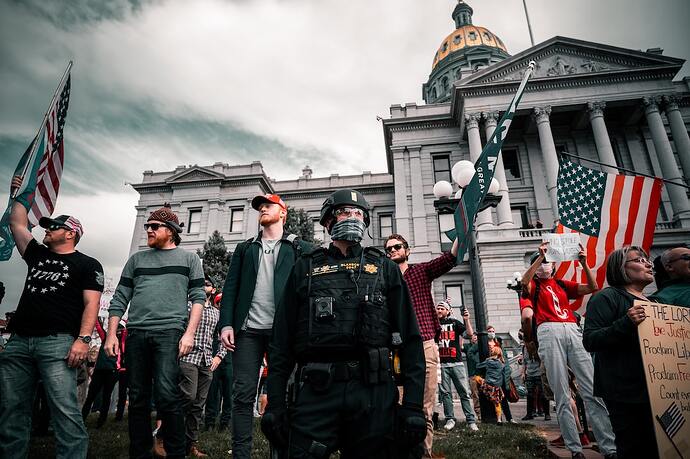Republicans, also known as the Grand Old Party (GOP), are a political party in the United States that advocates for conservative principles and values. The party was founded in 1854 and has a long history of shaping American politics.
History
The Republican Party was formed in 1854 as an anti-slavery party, with its first national convention held in 1856 in Philadelphia. The party’s first candidate for president was John C. Fremont in 1856. Abraham Lincoln, the party’s nominee in 1860, became the first Republican President of the United States.
The party’s early years were marked by its opposition to slavery and support for civil rights for African Americans. During Reconstruction, Republicans passed legislation to protect newly freed slaves and to provide opportunities for education and political participation.
In the early 20th century, the Republican Party was associated with progressive reforms, including conservation and the establishment of national parks. President Theodore Roosevelt, a Republican, was a leading advocate for these policies.
During the 1920s, Republicans supported policies that promoted economic growth and reduced government intervention in the economy. President Herbert Hoover, a Republican, is often associated with this period, although his policies did not prevent the onset of the Great Depression.
In the post-World War II era, Republicans supported policies that promoted free markets and limited government. President Ronald Reagan, a Republican, was a strong advocate for these ideas and oversaw a period of economic growth during his presidency.
Today, Republicans continue to advocate for conservative principles, including limited government, individual liberty, and a strong national defense.
Ideology
The Republican Party is a conservative party that values individual freedom and limited government intervention. The party’s platform includes support for lower taxes, free markets, and a strong national defense.
Republicans tend to be more skeptical of government intervention in the economy and support policies that promote free markets and private enterprise. They also tend to be more supportive of traditional values and social conservatism, including opposition to abortion and support for traditional marriage.
In recent years, Republicans have become more divided on certain issues, including immigration and trade. Some Republicans support comprehensive immigration reform, while others advocate for stricter enforcement of immigration laws. Similarly, some Republicans support free trade, while others are more skeptical of globalism and support protectionist policies.
Structure
The Republican Party is organized at the national, state, and local levels. The national party is led by the Republican National Committee (RNC), which is responsible for coordinating party activities and promoting the party’s agenda. The RNC is led by a chairman, who is elected by the party’s members.
The party’s state and local organizations are responsible for organizing elections and mobilizing voters. Each state has its own Republican Party organization, which is responsible for organizing caucuses and primaries and selecting delegates to the national convention. Local organizations, including county and city committees, play a key role in getting out the vote and mobilizing volunteers and donors.
In addition to its elected officials, the Republican Party has a network of interest groups and think tanks that advocate for conservative policies and ideas. These groups, including the American Enterprise Institute and the Heritage Foundation, provide policy advice and help shape the party’s platform and agenda.
Election Strategy
The Republican Party’s election strategy focuses on mobilizing its base of conservative voters and appealing to independent voters. The party typically relies on a strong ground game, including door-to-door canvassing and phone banking, to get out the vote.
Republican candidates also rely on donations from wealthy donors and organizations, including conservative interest groups and super PACs. These organizations can spend unlimited sums of money to support or oppose candidates, although they are not allowed to coordinate with candidates or political parties.
In recent years, Republicans have worked to expand their appeal to minority voters, including Hispanics and African Americans. However, the party continues to struggle with attracting diverse voters, particularly in urban areas.
Notable Republicans
Many notable Americans have been Republicans, including presidents Abraham Lincoln, Theodore Roosevelt, and Ronald Reagan. Other notable party members include former governors Mitt Romney and Jeb Bush, Senator John McCain, and former House Speaker Newt Gingrich.
Conclusion
The Republican Party has played a key role in shaping American politics and advocating for conservative principles and values. The party’s longstanding commitment to limited government, individual freedom, and a strong national defense continues to appeal to many Americans.
However, the party also faces challenges, including divisions on certain issues and struggles to attract diverse voters. As the party looks to the future, it will need to find ways to expand its appeal while staying true to its core principles and values.
Disclaimer
6do Encyclopedia represents the inaugural AI-driven knowledge repository, and we cordially invite all community users to collaborate and contribute to the enhancement of its accuracy and completeness.
Should you identify any inaccuracies or discrepancies, we respectfully request that you promptly bring these to our attention. Furthermore, you are encouraged to engage in dialogue with the 6do AI chatbot for clarifications.
Please be advised that when utilizing the resources provided by 6do Encyclopedia, users must exercise due care and diligence with respect to the information contained therein. We expressly disclaim any and all legal liabilities arising from the use of such content.
















